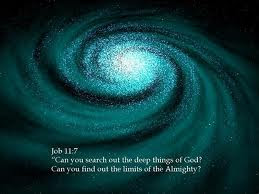A. W. Tozer Chapter Six: The Self-sufficiency of God

Excerpts from Chapter 6:
Opening Prayer:
“Teach us, O God, that nothing is necessary to Thee. Were anything necessary to Thee that thing would be the measure of Thine imperfection: and how could we worship one who is imperfect? If nothing is necessary to Thee, then no one is necessary, and if no one, then not we. Thou dost seek us though Thou does not need us. We seek Thee because we need Thee, for in Thee we live and move and have our being. Amen”
“Whatever God is, and all that God is, He is in Himself. All life is in and from God, whether it be the lowest form of unconscious life or the highly self-conscious, intelligent life of a seraph. No creature has life in itself; all life is a gift from God.”
“Since He is the Being supreme over all, it follows that God cannot be elevated. Nothing is above Him, nothing beyond Him. Any motion in His direction is elevation for the creature; away from Him, descent. He holds His position out of Himself and by leave of none. As no one can promote Him, so no one can degrade Him. It is written that He upholds all things by the word of His power. How can He be raised or supported by the things He upholds?”
“To be right we must think worthily of God. It is morally imperative that we purge from our minds all ignoble concepts of the Deity and let Him be the God in our minds that He is in His universe. The Christian religion has to do with God and man, but its focal point is God, not man. Man’s only claim to importance is that he was created in the divine image; in himself he is nothing. The psalmists and prophets of the Scriptures refer sad scorn to weak man whose breath is in his nostrils, who grows up like the grass in the morning only to be cut down and wither before the setting of the sun. That God exists for himself and man for the glory of God is the emphatic teaching of the Bible. The high honor of God is first in heaven as it must yet be in earth.”
“In His love and pity God came to us as Christ. This has been the consistent position of the Church from the days of the apostles. It is fixed for Christian belief in the doctrine of the incarnation of the Eternal Son. In recent times, however, this has come to mean something different from, and less than, what it meant to the early church. The Man
Jesus as He appeared in the flesh has been equated with the Godhead and all His human weaknesses and limitations attributed to the Deity. The truth is that the Man who walked among us was a demonstration, not of unveiled deity but of perfect humanity.
The awful majesty of the Godhead was mercifully sheathed in the soft envelope of Human nature to protect mankind. “Go down,” God told Moses on the mountain, “charge the people, less they break through unto the Lord to gaze, and many of them perish”; and later, “Thou canst not see my face: for there shall no man see me, and live.”
“Fountain of good, all blessing flows From Thee; no want Thy fulness knows; What but
Thyself canst Thou desire? Yet, self-sufficient as Thou art, Thou dost desire my worthless heart. This, only this, dost Thou require.”- Johann Scheffler.



Comments
Post a Comment